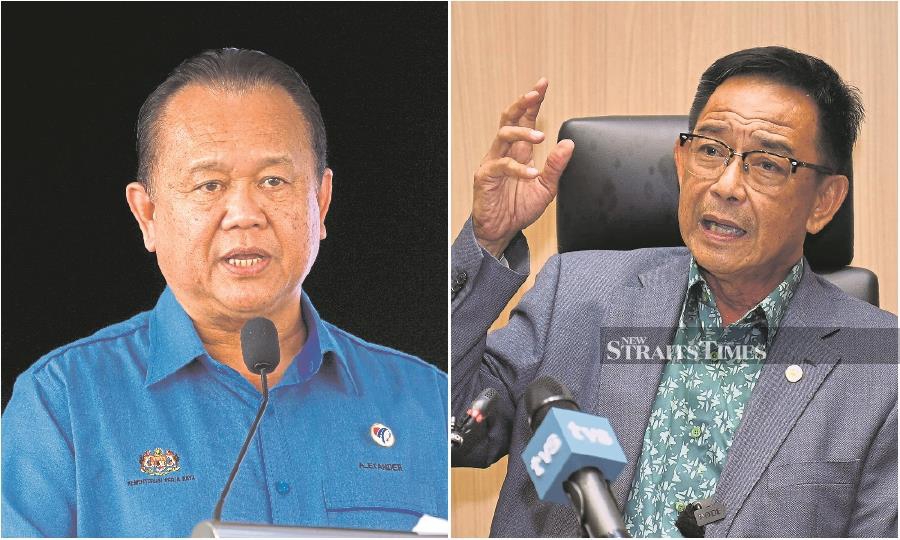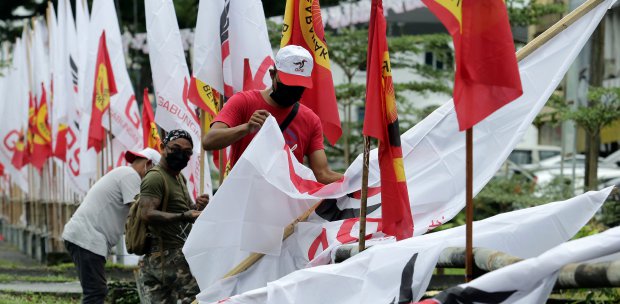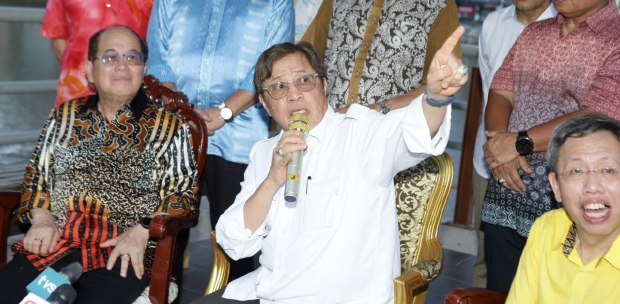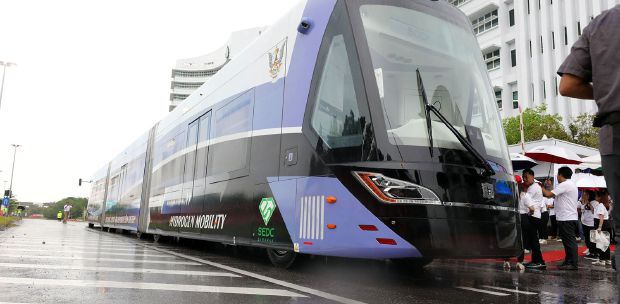A somewhat odd thing happened in Sarawak in the past week. It started when federal Works Minister Datuk Seri Alexander Nanta Linggi said Sarawak should not accept any Palestinian refugees from war-torn Gaza.
Within days the Sarawak Tourism, Creative Talent and Performing Arts Minister Datuk Seri Abdul Karim Rahman Hamzah shot back, saying it was premature to comment on the matter as no decision had been made on accepting any refugees.
The odd thing is that both ministers are from Parti Pesaka Bumiputera Bersatu (PBB), the lynchpin of the ruling Gabungan Parti Sarawak coalition.
Nanta is party secretary-general and Karim is a vice-president. It is rare for such dissonance to be aired publicly by PBB bigwigs.
The high-level internal discord, unsurprisingly, had the potential to quickly escalate. A mass demonstration in support of Nanta was called in his hometown of Kapit before it was called off by police.
The two leaders quickly met in Kuching and buried the hatchet. Hindsight is always 20/20, as Nanta noted after sitting down with Karim: "It should not lead to anything serious, but it was sensitive because we had people surrounding us, so we must come to a point sometime to offer our views. We, however, did not want this to blow up and become worse."
The genie may have been quickly put back in the bottle this time but does this presage something even more serious that PBB must not sweep under the carpet?
PBB has been the most successful political party in Sarawak thus far, producing all the chief ministers (now premier) since it was created in 1973 as a merger of two parties — the Dayak-based Pesaka and the Malay/Muslim-based Bumiputera.
The late Tun Temenggong Jugah (Nanta's grandfather) was the first PBB president, but it was the first party secretary-general, the late Tun Abdul Rahman Ya'kub, who was chief minister, the post he assumed in 1970.
Rahman's nephew, Tun Abdul Taib Mahmud, took over as both chief minister and PBB president in 1981 and stayed till 2014. Uncle and nephew, thus, occupied the top leadership post for 40 of PBB's 50 years in existence.
There is at least a gentlemen's understanding that Pesaka and Bumiputera will remain distinct but co-equal branches within PBB.
But, it has become obvious over the decades that Bumiputera is preeminent as it has produced all the chief ministers and premier since.
It will, therefore, not be surprising if Nanta felt the need now to be publicly more assertive in response to perceived restiveness within PBB ranks from the Pesaka branch.
His grandfather missed becoming Sarawak's first governor while his father, Tan Sri Leonard Linggi Jugah, only served a relatively short stint as a state minister despite taking over from Rahman Ya'kub as PBB secretary-general.
Is the current controversy over Palestinian refugees a foretaste of Sarawak's and PBB's political succession?
The inevitable leadership change from Premier Tan Sri Abang Johari Openg will be the first outside the Rahman-Taib tandem.
Observers have noted that a key secret to PBB's political success is the party's ability to finesse smooth leadership transitions.
To be sure, that was easier when transitions happened just within the Bumiputera branch and under domineering leaders such as Taib.
It will become much more challenging especially if and when rank and file from the Pesaka branch become more impatient about coming out of the shadows of the Bumiputera branch.
The PBB collective leadership has over the years mastered the art of political compromise through a delicate balancing of interests that ensures nobody feels left out.
There is little reason to think it will not continue performing that feat which has afforded Sarawak a half century of political stability unheard of prior to PBB's existence.
The writer views developments in the nation, region and wider world from his vantage point in Kuching
The views expressed in this article are the author's own and do not necessarily reflect those of the New Straits Times






